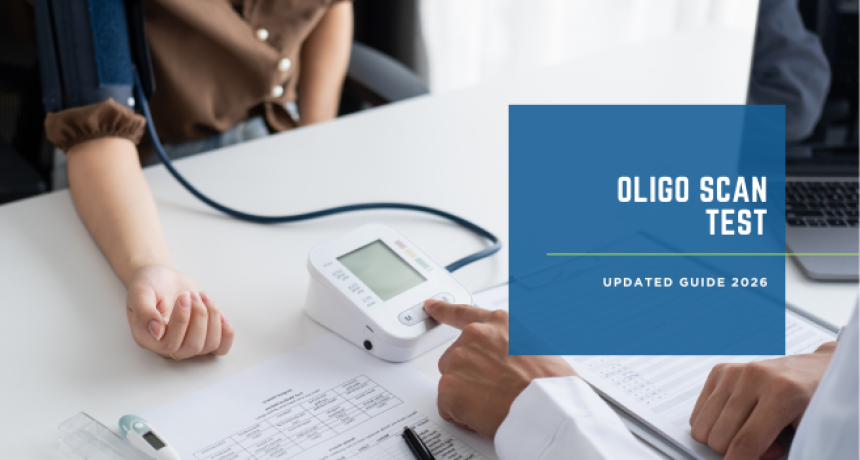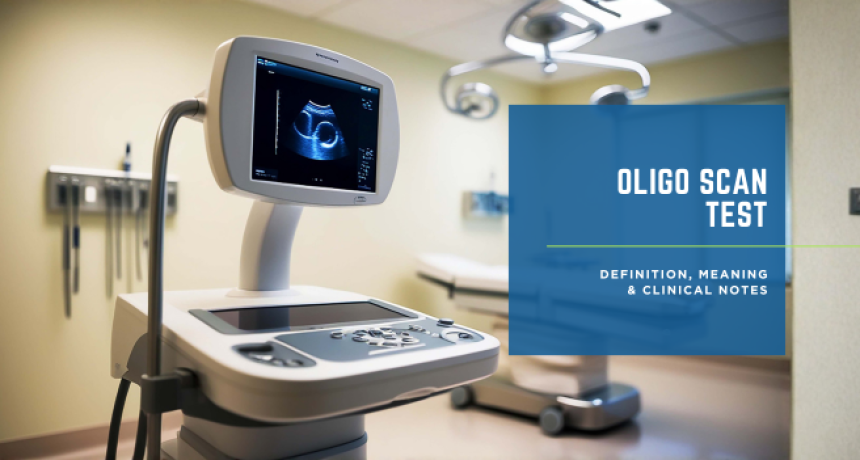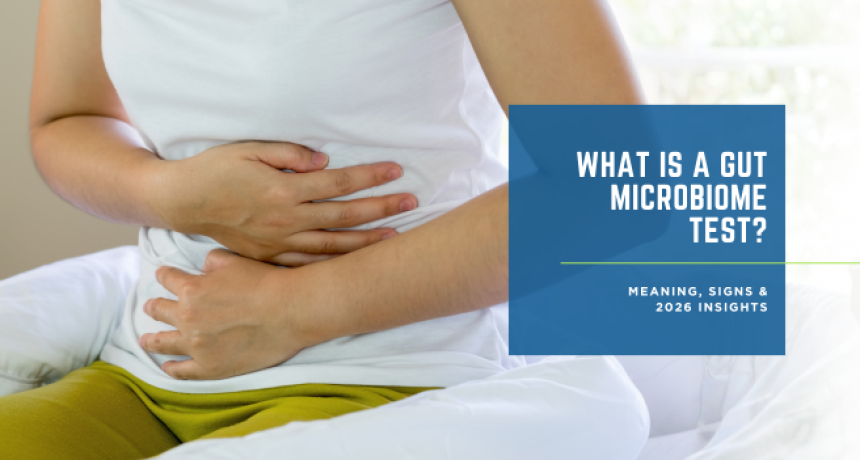How Stress Contributes to PCOS: Understanding the Connection and Managing It Effectively
2025-04-04 Polycystic Ovary Syndrome (PCOS) is a complex hormonal disorder affecting millions of women worldwide. While the exact causes of PCOS remain unclear, research suggests that multiple factors, including genetics, insulin resistance, and lifestyle choices, contribute to its development. One major but often overlooked factor in PCOS is stress. Chronic stress can exacerbate PCOS symptoms, disrupt hormone balance, and make management more challenging. In this comprehensive blog, we will explore how stress impacts PCOS and discuss effective strategies for stress management. ✅ Quick Answer: Stress does not directly cause PCOD/PCOS, but research shows it worsens hormonal imbalance, insulin resistance, and inflammation, which makes symptoms more severe. PCOS is characterized by a combination of symptoms, including: Irregular menstrual cycles or absent periods Excess androgen levels, leading to acne, hair thinning, and hirsutism (excess hair growth) Polycystic ovaries, where multiple small cysts form on the ovaries Metabolic issues, such as insulin resistance and weight gain Fertility challenges, making it difficult for some women to conceive These symptoms can vary from person to person, but stress plays a significant role in making them worse. 📌 Note: Studies (ScienceDirect, 2023) confirm that stress amplifies these symptoms by altering cortisol and insulin pathways. How Stress Impacts PCOS Chronic stress activates the hypothalamic-pituitary-adrenal (HPA) axis, which leads to an increased release of cortisol, the primary stress hormone. When cortisol levels remain high for extended periods, it disrupts hormonal balance in the body. Women with PCOS already experience hormonal dysregulation, and chronic stress can further exacerbate: Increased androgen (male hormone) levels, worsening symptoms like acne, hair loss, and excess facial hair. Elevated insulin levels, contributing to insulin resistance and weight gain. Disrupted menstrual cycles, leading to irregular periods or anovulation (lack of ovulation). 💡 Clinical Insight: Many patients report that exam stress, work deadlines, or major life changes directly trigger flare-ups of acne, missed periods, or fatigue. One of the key features of PCOS is insulin resistance, which means the body’s cells become less responsive to insulin. The pancreas compensates by producing more insulin, leading to weight gain and increased testosterone levels. Chronic stress worsens insulin resistance by: Increasing cortisol production, which signals the liver to release more glucose into the bloodstream. Triggering unhealthy cravings for high-carb and sugary foods, leading to blood sugar spikes and crashes. Promoting fat storage, particularly around the abdomen, which further aggravates metabolic issues. 📖 Reference: A 2023 study (ScienceDirect) highlights the bidirectional link between stress hormones and insulin dysregulation in women with PCOS. Chronic stress is associated with low-grade inflammation, which is already a concern for women with PCOS. Inflammation contributes to: Worsening insulin resistance Increased androgen production Higher risk of cardiovascular diseases Stress-induced inflammation can make PCOS symptoms more severe, making it crucial to manage stress effectively. Living with PCOS can be emotionally challenging, leading to: Low self-esteem due to body image issues Emotional eating and unhealthy lifestyle choices A vicious cycle often forms: PCOS symptoms cause stress, and stress further worsens PCOS symptoms. Breaking this cycle with targeted lifestyle changes is critical for both physical and emotional health. Practicing mindfulness and meditation can help lower cortisol levels and promote relaxation. Even 10–15 minutes of daily meditation can: Improve emotional regulation Reduce anxiety and depression Enhance hormonal balance
🧘 Pro Tip: Guided meditation apps like Headspace or Calm are often recommended by doctors for women managing PCOS. Physical activity is a powerful stress reliever and helps manage PCOS symptoms by: Lowering cortisol levels Enhancing insulin sensitivity Promoting hormonal balance Best exercises for PCOS and stress relief: Yoga Pilates Strength training Low-intensity cardio (like walking or swimming) A nutrient-dense diet supports both hormonal health and stress management. Key dietary tips include: Eating complex carbohydrates (quinoa, brown rice, vegetables) instead of refined carbs. Including healthy fats (avocados, nuts, olive oil) to support hormone production. Consuming high-quality protein (fish, eggs, legumes) to stabilize blood sugar levels. Avoiding processed and sugary foods, which can spike insulin and worsen stress responses. 🥗 Evidence-Based Tip: Low-GI diets have been shown in clinical trials to reduce both insulin resistance and stress markers in PCOS patients. Poor sleep increases stress and worsens PCOS symptoms. Tips for better sleep include: Maintaining a consistent sleep schedule Avoiding screens before bedtime Creating a relaxing nighttime routine Practicing deep breathing exercises before bed Certain herbs can help reduce stress and improve hormonal balance in PCOS. Some effective options include: Ashwagandha: Lowers cortisol and improves stress resilience. Spearmint tea: Helps reduce androgen levels and promote relaxation. Magnesium: Supports the nervous system and improves insulin sensitivity. Omega-3 fatty acids: Reduce inflammation and support hormone regulation. ⚠️ Disclaimer: Always consult a qualified doctor before starting supplements or herbal remedies. Managing stress and PCOS can be overwhelming. Consider consulting a: Nutritionist for a tailored PCOS-friendly diet plan. Therapist for managing anxiety and emotional well-being. Doctor or endocrinologist for medical treatment options. PCOD (Polycystic Ovarian Disease) and PCOS (Polycystic Ovary Syndrome) are often used interchangeably, but they are different. PCOD refers to a condition where the ovaries produce many immature eggs that turn into cysts, whereas PCOS is a more severe metabolic disorder associated with hormonal imbalances and insulin resistance. Common symptoms include irregular periods, excessive hair growth, acne, weight gain, and fertility issues. Stress does not directly cause PCOS, but chronic stress worsens symptoms like irregular periods, weight gain, and hormonal imbalance. What is the best PCOD problem treatment? A holistic approach, including lifestyle changes, stress management, a proper diet, and medical guidance, is the best way to manage PCOD effectively. PCOS reversal is possible through diet, exercise, stress management, and expert guidance from holistic health professionals. Take Charge of Your PCOS with L&B Clinics If you're struggling with PCOD problem symptoms, it's time to take control. At L&B Clinics, we specialize in PCOS treatment in delhi through a holistic and integrative approach. Our expert doctors and nutritionists help you identify the root cause and create a personalized PCOD problem treatment plan, combining dietary strategies, stress management, and medical support.Understanding PCOS: A Quick Overview
1. Stress and Hormonal Imbalance
2. Stress and Insulin Resistance
3. Stress, Inflammation, and PCOS
4. Stress and Emotional Well-being
Managing Stress to Improve PCOS Symptoms

1. Mindfulness and Meditation
2. Regular Exercise
3. Balanced Diet
4. Prioritizing Sleep
5. Herbal and Natural Remedies
6. Seeking Professional Support
FAQs About PCOS.
What is the difference between PCOS and PCOD?
What are the common PCOD problem symptoms?
Can stress alone cause PCOD or PCOS?
How can I reverse PCOS naturally?
Next Step: Book a consultation today and start your journey to hormonal balance and better health!
.png)















